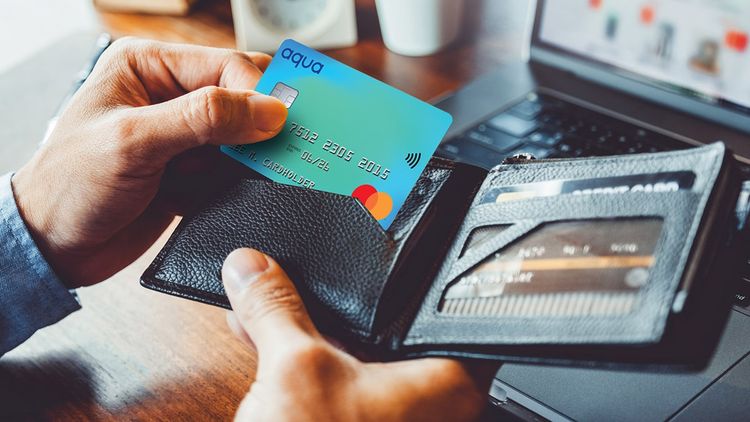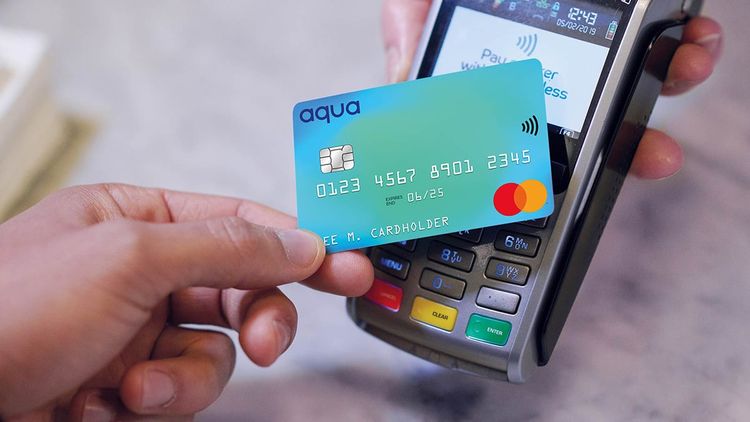In this article
How many credit cards should you have?
Learn more about how many credit cards you should own. Discover the pros and cons of multiple credit cards and find out how to use them responsibly

There’s no one-size-fits-all answer to how many credit cards you should have. Where at least one credit card can help you build a good credit score, having multiple cards might be more suited to your financial goals and habits.
In the UK, the average number of credit cards per person is 1.7. Although there’s technically no limit to how many credit cards you can have, it’s important to manage your accounts responsibly and only borrow what you can afford to pay back each month.
In this article, we’ll walk you through what to consider when thinking about the right amount of accounts and whether you should apply for a credit card online.
Can you have more than one credit card?
There isn’t a limit to the amount of credit cards you can have, but the temptation of having more available credit and spending flexibility can be a potential gateway for incurring debt.
If you decide to take out multiple credit cards, it’s important you have the financial discipline to avoid spending more than you can afford to pay back each month.
By demonstrating you can manage multiple cards, you may be able to protect your score, maintain a low credit utilisation rate, and potentially take advantage of rewards and benefits offered by your lender.
As a guiding principle, you should have a clear purpose for each credit card. If the reason is simply to have more available credit, you might be tempted to spend more than you can afford to pay back.
To avoid any penalties, it’s wise to set up direct debits so you never miss a credit card payment and always make sure you have more than enough in your current account to cover what you owe.
Can You Have Too Many Credit Cards?
There’s no hard-and-fast rule on whether you should have one or multiple credit cards. It largely depends on your financial situation and ability to manage credit without the temptation to overspend.
If you decide multiple cards are right for you, it’s important to remember that applying for multiple cards in a short period of time could negatively impact your credit score. Not only does it suggest you could be struggling financially, but it also signals to lenders you might be irresponsible with credit.
That said, there are advantages to using one or multiple credit cards. But having too many could become difficult to manage and may negatively impact your financial situation instead of improving it.
For that reason, it’s important to take sensible precautions such as setting up automatic payments, spending within your means, and activating account alerts for due date and balance updates.
To determine whether you need one or multiple credit cards, you should consider.
Your financial habits
If you have a history of overspending, you could be at risk of accruing more debt. Take the time to assess whether another credit card is necessary and, if so, what precautions you’ll put in place to stay on track with your finances.
If multiple credit cards fit your financial situation (and you’re sensible with your spending), having more than one account could give you a range of benefits including points, rewards, and financial flexibility.
Your debt management
Applying for more credit cards to pay off old debt can lead to further financial difficulty later down the line. If you struggle to stay on top of multiple accounts, it might be best to cut back on the amount of credit cards you have.
It’s also important to avoid overspending and pay back what you borrow on time to protect your credit score and avoid any late fees.
Your preferences
Although a new credit card might seem like a short-term fix, it’s another account you must remember to manage. When you look beyond the welcome bonuses and other new-member rewards, you might prefer the simplicity of having fewer credit cards.
A sign you might have too many credit cards to effectively manage could be high credit utilisation, excessive annual fees, or difficulty tracking payments.
Olajide Davies, Head of new lending at Aqua says "Every financial situation is unique, so there's no hard-and-fast rule whether multiple accounts are right for you. If you decide multiple credit cards will help you stay on top of your finances, it's important to only borrow what you can afford to pay back each month"
How many credit cards should you have based on your needs?
While one person might have five credit cards to manage their finances, another might only need one to help them fix bad credit. Here’s some guidance to help you find the right amount for you
For beginners or building credit
If you don't have a credit history and are just starting your journey to build credit, a single credit card can be a smart first step. Similarly, if you're working to improve your score, a credit card designed for those with bad credit might be a good fit.
It’s easier to manage than multiple cards and will help you get in the habit of paying back what you borrow and staying on track with your finances – all with the simplicity of a single account.
For everyday spenders
If you’re sensible with your finances and always spend within your means, you could benefit from having two or three different types of credit cards offering a range of different benefits.
For example, you might have a cashback card for daily purchases, a travel card for air miles, and a 0% interest card for emergencies. Whatever works best for you and your financial situation.
For frequent travellers or rewards maximisation
If you spend a lot of your time travelling for business or leisure, you might benefit from multiple credit cards to accumulate points and rewards for specific hotels and airlines.
As tempting as the benefits might be, it’s important not to risk your financial stability for the sake of extra benefits. Always spend within your means and don’t apply for more credit cards than you can sensibly manage.
Does having multiple credit cards affect your credit score?
Despite the typical credit card myths, having multiple credit cards doesn’t necessarily affect your credit score. Here’s what to watch out for.
Credit utilisation
Credit utilisation is expressed as a percentage and looks at how much credit you have access to compared to how much you’re using. For example, if you have a £10,000 credit limit and use £1,000, then your utilisation is 10%.
To protect your credit score, you should aim to keep this figure below 25%, with a view to demonstrate you’re in control of your finances and not dependent on credit.
Multiple credit applications
Making multiple credit applications in a short period of time can suggest a struggle with finances. If you’re declined credit, always investigate the reason before you make any other application.
Whether you’re accepted or not, a hard inquiry will stay on your credit record for up to two years, and may impact your credit score for typically no more than a couple of months.
If you’re not sure whether you’d be accepted, you can check your credit card eligibility with no impact on your credit score.
Payment history
Maintaining a positive payment history is critical for improving your credit score. Having multiple cards can potentially help you to get there quicker, but it also comes with greater risk of overspending or missing payments.
If you decide to take out multiple credit cards, you should spend within your means, stay within your credit limit, and set up automatic payments to protect your payment history.
How to manage multiple credit cards responsibly
If you’re thinking about having multiple credit cards, here are some ways to help you manage things sensibly and potentially fix bad credit.
- Make timely payments so you never have to worry about paying interest or late fees. Setting up automatic payments is a smart way to stay on track.
- Monitor spending closely by creating a budget and monitoring buying habits closely. Whatever you do, don’t spend more than you can afford to comfortably repay each month.
- Keep balances low and avoid going over your credit limit. It’ll show lenders you’re responsible with credit and may give you the option to extend your credit limit.
- Be mindful of annual fees and make sure they’re justified by the potential points, rewards, and benefits you can earn from using your credit card.
Here’s some more guidance to help you manage your account(s) responsibly and reduce credit card debt.
How to transfer a credit card balance to another credit card
A balance transfer credit card is an option for those who want to save money on interest repayments or consolidate their balances to one place.
Before you request a balance transfer, it’s a good idea to check the balance transfer fee as well as your new interest rate once the promotional period has expired.
You should also be aware a balance transfer can temporarily impact your credit score. This is because your lender will perform a hard credit check on your financial history to see if you’re eligible for a transfer.
If you feel a balance transfer is right for you, here’s a step-by-step guide on how to get started. The whole process can take anywhere between a few days or a few weeks depending on the lender and the time of year you make the request.
To make the most of any promotional period, you should make sure payments are made on time every month. Failure to do so could result in paying the standard interest rate set by your lender.
There’s no one-size-fits-all answer to having one or multiple credit cards – it depends on your financial situation and what you want to achieve with credit.
Whatever way you decide to go, it’s important you stay on top of your account(s) and only borrow what you can afford to comfortably repay every month. If you’re unsure on a route that’s right for you, feel free to explore our range of credit card options.
Failure to make payments on time or to stay within your credit limit means that you will pay additional charges and may make obtaining credit in the future more expensive and difficult.
Contributors


You might also like
Slide 1 of 3
What is a balance transfer?
A credit card balance transfer is when you transfer the balance from one card, where you might be paying a higher a...

Credit card vs debit card - what's the differ...
Understand the key differences of credit vs debit and learn which is best suited for your needs.

Understanding types of credit cards
Find out more about the common types of credit cards and which is right for you.
The smart way to build better credit
Aqua is the credit card that gives you the power to improve your credit score
